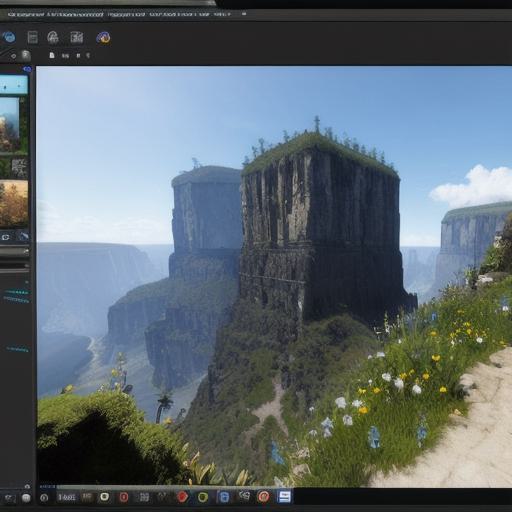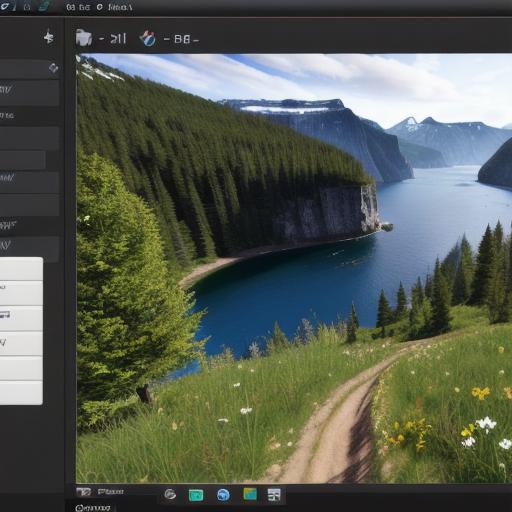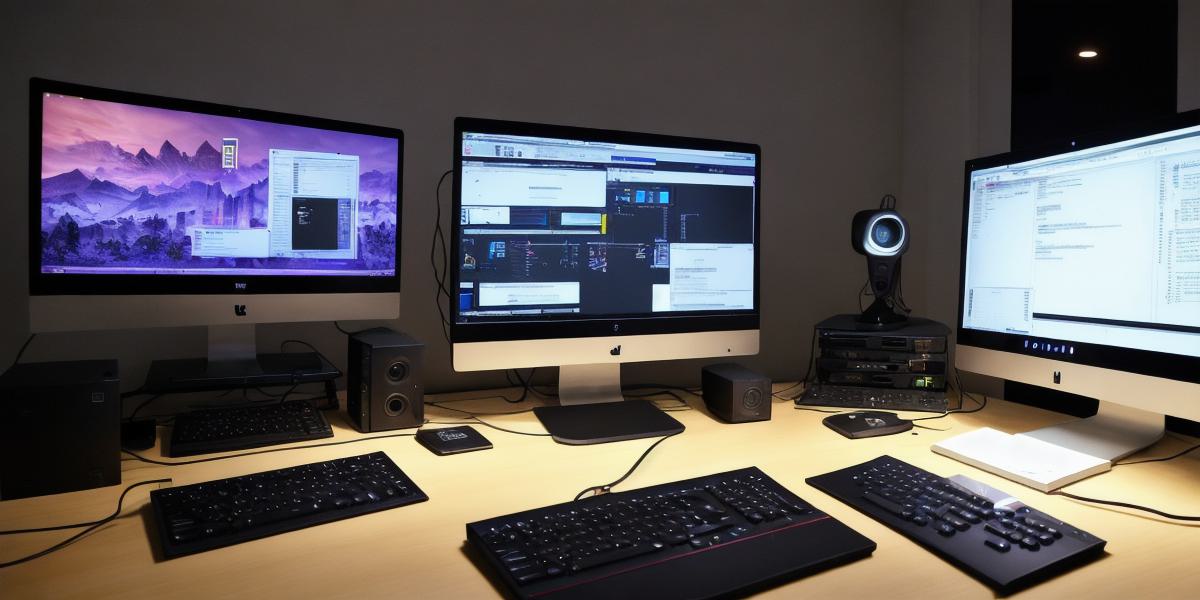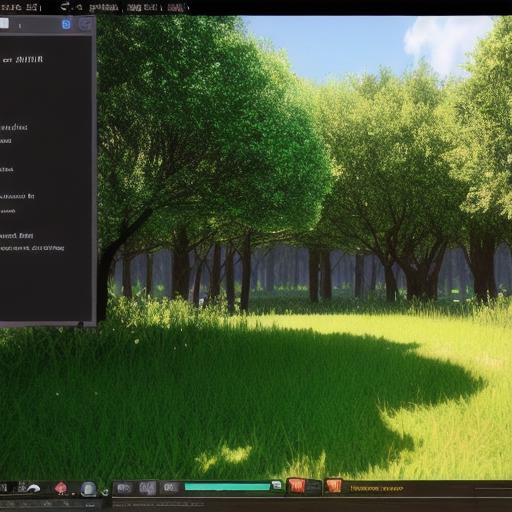Introduction
As technology advances, game development has become more accessible than ever before. With the rise of Linux as a powerful platform for gaming, developers have found themselves with a wealth of tools at their disposal to create engaging and immersive games. In this article, we will explore some of the best Linux game development tools available to help you unleash your creativity and bring your ideas to life. We will discuss the features and capabilities of each tool, as well as real-life examples of games that have been developed using these tools.
The Rise of Linux Gaming
Linux has come a long way since its early days as a niche operating system for servers and other enterprise applications. With the advent of powerful hardware and advanced software development tools, Linux has emerged as a viable platform for gaming. Today, Linux supports a wide range of games, from classic titles like Doom and Wolfenstein to modern hits like Minecraft and Kerbal Space Program.
One of the key advantages of Linux in gaming is its open-source nature. This means that developers can modify and extend the operating system to suit their needs, leading to a more customizable and flexible platform for game development. Additionally, Linux’s support for multiple architectures and its large and active user community make it an attractive option for developers looking to create cross-platform games.
Game Development Tools: A Brief Overview
There are many tools available to game developers working on Linux. These tools can be broadly categorized into the following categories:
- Game engines: These are software frameworks that provide a set of tools and libraries for creating games. They typically include features such as 3D modeling, animation, physics simulation, and audio processing. Examples of popular game engines for Linux include
Unity
,
Unreal Engine
, and
Godot
.
- Game development kits (SDKs): These are collections of software development tools and libraries specifically designed for creating games on a particular platform. SDKs typically include features such as graphics APIs, audio interfaces, and networking protocols. Examples of popular game development kits for Linux include the Oculus SDK,
Steamworks
, and OpenVR SDK.
- Game assets: These are pre-made resources such as 3D models, textures, and sound effects that can be used to create games. Game assets can save developers a lot of time and effort by providing a starting point for their projects. Examples of popular game asset collections for Linux include the
Unity
Asset Store, the Steam Workshop, and the OpenGameArt website.
-
Debugging and profiling tools: These are software tools that help developers identify and fix bugs in their code. They can also be used to optimize performance and improve the overall quality of a game. Examples of popular debugging and profiling tools for Linux include
Valgrind
, GDB, and DTrace.
The Best Game Development Tools for Linux
Now that we have an overview of the different types of game development tools available on Linux let’s take a closer look at some of the best options.
Unity
Unity is one of the most popular game engines in use today, with a large and active user community. It supports both 2D and 3D game development, and includes a wide range of features such as physics simulation, animation, and audio processing.
Unity
also has a powerful scripting language called C, which is used to write game logic.
Unity is available for free on Linux, with additional features and support available through paid subscriptions. One of the key advantages of
Unity
is its cross-platform capabilities, meaning that games developed using this engine can be deployed on a wide range of devices and platforms, including Linux.
Real-life examples of games developed using
Unity
on Linux include "Pillars of Eternity" and "Minecraft: Education Edition."
Unreal Engine
Unreal Engine is another popular game engine that supports both 2D and 3D game development. It includes a wide range of features such as physics simulation, animation, and audio processing, and has a powerful scripting language called Blueprints.
Unreal Engine is available for free on Linux, with additional features and support available through paid subscriptions. Like
Unity
,
Unreal Engine
is cross-platform capable, meaning that games developed using this engine can be deployed on a wide range of devices and platforms, including Linux.
Real-life examples of games developed using
Unreal Engine
on Linux include "Samaritan," "Perfect," and "Escape Room MMORPG."
Godot
Godot is an open-source game engine that supports both 2D and 3D game development. It includes a wide range of features such as physics simulation, animation, and audio processing, and has a powerful scripting language called GDScript.

Godot is available for free on Linux, with additional features and support available through paid subscriptions. One of the key advantages of
Godot
is its open-source nature, which allows developers to modify and extend the engine to suit their needs.
Godot
is also cross-platform capable, meaning that games developed using this engine can be deployed on a wide range of devices and platforms, including Linux.
Real-life examples of games developed using
Godot
on Linux include "Moonlight Mare," "Astro’s Playroom," and "The Last Door."
OpenVR SDK
OpenVR is an open-source software development kit (SDK) specifically designed for creating virtual reality (VR) games. It includes features such as graphics APIs, audio interfaces, and networking protocols, and can be used to develop games for a wide range of VR platforms, including Linux.
The OpenVR SDK is available for free on Linux, with additional features and support available through paid subscriptions. One of the key advantages of the OpenVR SDK is its open-source nature, which allows developers to modify and extend the SDK to suit their needs.
Real-life examples of VR games developed using the OpenVR SDK on Linux include "Half-Life: Alyx" and "Beat Saber."
Valgrind

Valgrind is a powerful debugging and profiling tool that can be used to identify and fix bugs in game code. It includes features such as memory analysis, thread detection, and performance profiling, and can be used to optimize the overall quality of a game.
Valgrind is available for free on Linux, and can be used with a wide range of programming languages and development environments. One of the key advantages of
Valgrind
is its ability to detect memory leaks and other common bugs that can cause games to crash or behave unpredictably.
Steamworks
Steamworks is a game development kit (SDK) specifically designed for creating games for the popular Steam platform. It includes features such as multiplayer networking, in-game purchases, and community management tools, and can be used to develop games for Windows, macOS, and Linux.
The
Steamworks
SDK is available for free on Linux, with additional features and support available through paid subscriptions. One of the key advantages of the SteamWorks SDK is its integration with the popular Steam platform, which provides access to a large and active user community.
GDB
GDB is a powerful debugging tool that can be used to analyze and troubleshoot game code. It includes features such as memory analysis, thread detection, and performance profiling, and can be used with a wide range of programming languages and development environments.
GDB is available for free on Linux, and can be used with a wide range of programming languages and development environments. One of the key advantages of GDB is its ability to provide detailed information about the state of a program, which can be used to identify and fix bugs.
DTrace
DTrace is a powerful debugging and profiling tool that can be used to analyze and troubleshoot game code. It includes features such as memory analysis, thread detection, and performance profiling, and can be used with a wide range of programming languages and development environments.
DTrace is available for free on Linux, and can be used with a wide range of programming languages and development environments. One of the key advantages of DTrace is its ability to provide detailed information about the state of a program, which can be used to identify and fix bugs.
Conclusion
Linux is a powerful and popular operating system that can be used for a wide range of purposes, including game development. There are many different types of game development tools available on Linux, each with its own strengths and weaknesses. By understanding the best options, developers can choose the right tools for their needs and create high-quality games that can be deployed on a wide range of devices and platforms.



